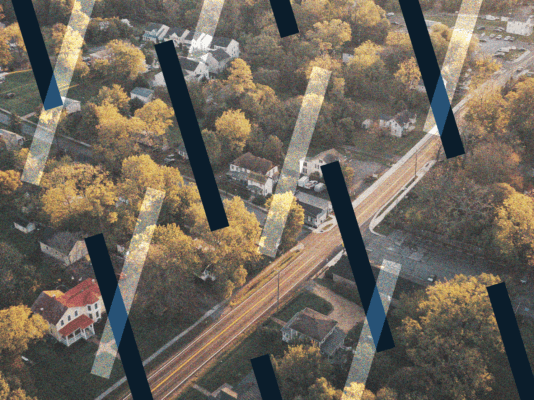What I’m about to tell you is disturbing and painful. However, my goal isn’t to upset you, or really even to shock you. Rather, I want to use my experience to equip you so that you can better protect the children in your life.
When I was about 10 years old, my dad began saving pornography to my computer desktop. We were a homeschooling family, and I often used that computer to write book reports, or publish my own little magazine which I distributed to church friends. Sometimes I’d catch my dad watching me sit down at the desk, and I’d wonder what I’d see when I logged in. The milder images were of teenage girls dressed as children; the worst involved rape and other horrifying images. I was terrified. I began to have recurring nightmares.
This went on for several years. Sometimes, I was certain my dad was behind it. Other times, I felt ashamed for thinking he’d do such a thing. Eventually, I grew desperate. I contacted our local FOX News station and asked them to investigate how porn was being planted on my desktop. A concerned reporter showed up at our house and interviewed 16-year-old me for the evening news. He warned our community about predators online. Sadly, no one noticed the predator in my home.
A few statistics
Pornography can be insidious and is always destructive. It is an ever-growing monster of an industry. Here are just a few startling statistics:
- According to PornHub, the word “teen” has topped the pornography mega-site’s search terms for over six years running. In 2018, more than 5,517,000,000 hours of porn were watched on the website, which received over 33,500,000,000 visits.
- Child porn is one of the fastest growing online businesses, with over 55% of victims just 10 years old or younger (IWF).
- Many studies have linked porn usage to higher instances of depression, anxiety, sexual aggression, sexual dysfunction, and other mental health issues (Truth About Porn).
- Married people who view pornography were found to be twice as likely to get divorced as those who don’t (Springer). Pornography use has been linked to permissive sexual attitudes and behaviors, including infidelity (National Institute of Health).
- Multiple studies have linked porn usage to a higher rate of sexual violence and abuse (Truth About Porn). Pornography usage has been linked to attitudes supportive of violence against women (National Institute of Health).
A few consequences of viewing pornography
The consequences of viewing pornography, even unintentionally, were multi-layered for me. Below I will break it down, so you can understand why and how porn is dangerous to children, and why and how abusers use it to exploit children. It is my hope that knowing this information will make you a better protector, a wiser leader, and better at spotting red flags and understanding danger.
Porn made me feel ashamed.
At first, I was fascinated by some of the tamer images. Like all young girls, I wanted to be attractive, and I thought these photos depicted some kind of ideal. My parents hadn’t yet told me about sex, so it was a topic I was very curious about. I researched human biology and reproduction using my trusty set of World Book Encyclopedias. No one else was educating me. I needed to educate myself, I figured.
In addition to being strange and intriguing, porn was also embarrassing and shameful. For a long time, I didn’t tell anyone. I didn’t want anyone to think I’d downloaded the photos myself. In fact, when I did eventually tell my mom, that’s exactly what my dad claimed I’d done. In this way, my abuser taught me how to keep dangerous secrets. He trained me not to report abuse by giving me smaller abusive secrets to practice with. I became used to staying quiet.
Porn made abuse seem normal.
The more graphic and violent the pornography became, the less shocked I felt by abuse. Soon, my concept of what was normal became skewed and blurry. My standards for how I should be treated plummeted. I became acclimated to the idea that I was prey, and men were predators; that women are objects, and men are collectors. Sex and love became dangerously disjointed in my mind. I understood sex as a mere biological urge, and love was something only God felt for me. I began viewing myself the way I knew men viewed those girls in the photos—a commodity valued only for sexual pleasure.
Porn altered how I viewed men.
Somehow, despite the way my dad treated me, I knew in the back of my mind that not all men were dangerous. Not all men were evil. Not all men looked at porn. However, I believed that if I wanted a man to love me—even in a pastoral or paternal way—I needed to be sexually attractive to him. I’d noticed that my dad was nicer to me when I wore makeup, and crueler when I was sick or frumpy. I began taking responsibility for how my dad behaved. My guilt for his lust became a crushing load.
I began to wonder if, somehow, I was causing my dad to be perverse. I feared that if I went to my pastor or a friend’s dad for help, something about me would corrupt him, and he’d turn dangerous like my dad. I didn’t want to be responsible for another child’s dad becoming evil, so I stayed away from them. Other kids deserved safe fathers, and I didn’t want to mess them up.
Porn can stay in your head forever.
While you may be able to throw porn away and stop buying it, it’s very hard to get those images out of your head. They’re burned in your memory like a brand. For many, those images pop up during moments of intimacy, inserting anxiety or guilt into what should be a healthy marital relationship. Whether porn was looked at intentionally for the purpose of lust, or coercively as a form of abuse, memories linger or may spring to mind at random. Even now, nearly 20 years later, I can still see their faces, crying. Sometimes I’ll be washing dishes or playing with my kids, and an image pops randomly into my head. It’s like being haunted by other people’s evil.
Porn damages your relationship skills.
I’m extraordinarily blessed that the porn I saw didn’t damage my relationship with my husband. My fear of men faded because he was so kind and patient. I was honest with him about it. But until I told him what I’d seen, I felt waves of insecurity and embarrassment around him. I feared not living up to some imaginary standard. I feared being abandoned when our marriage grew routine or I grew old and worn out. I had survived over two decades of domestic violence and child abuse. As a 23-year-old newlywed, I was diagnosed with PTSD, and we worked through my trauma together.
Some men I’ve talked to shared that porn inhibits their ability to relate with women; to communicate, to socialize, to read emotions, and to love them well. What often began as curiosity, ultimately distorts the perception of their sexual identity and of others. For women, porn often inhibits their sex lives with their husbands. Their concept of sexuality has become entangled with evils like malice, selfishness, perversion, and violence. It’s hard to relax, to trust, and to rest in the knowledge that their husbands love them. It’s hard to understand sex as an expression of love.
A few ways to protect our children
It’s clear that pornography is incredibly harmful. We should be doing everything we can to protect our children from its dangerous influence. Here are a few ways we can educate them and seek to turn their hearts from pornography’s snare.
Teach your kids about sex before someone else does.
Educating your child in a timely and age-appropriate manner will reduce the likelihood that they’ll Google terms out of curiosity. Make it clear to them that if they have any questions or concerns, they can come to you, and you won’t be upset.
Be upfront and honest about porn.
Tell your kids that photos or videos of sex or nudity are wrong and teach them what God’s Word says about their bodies. Verses like Matthew 5:28 show us that pornography is sinful. Reassure your children that if anyone ever shows them something bad, or they see porn by accident, they should tell you about it, and they won’t get in trouble.
Be aware that many children encounter porn at the home of a friend or neighbor.
Always be aware of who your child is with, and be careful about letting them visit people you don’t know very well. Impress upon them that if a friend’s parent or sibling ever says or does something that makes them feel uncomfortable, they should tell you.
May the Lord give us the resolve to protect our children, fight against this evil, and bring the good news of the gospel to the victims of our sexualized culture.
Monitor your kids’ online activity and texts.
Know what websites they visit, who they’re talking to, and what their passwords are. Be aware of the images they’re taking of themselves and sharing.
Recognize that abusers sometimes use porn to groom victims.
If you encounter a child who seems to know too much about sex or pornography, or a teenager who seems unusually knowledgeable or active, steps should be taken to ensure they are not in contact with a sexual predator. As one counselor noted, “High sexual awareness by a minor is an indicator of sexual exposure. When a child has an awareness he or she ought not have, it is likely it came from an adult in their life.” Contacting the child’s school administration, church leadership team, or Child Protective Services (CPS) are a few options for seeking the child’s safety.
Alerting CPS or other authorities does not mean you are “pressing charges.” Instead, as the same counselor mentioned above pointed out, it’s like “getting an expert second opinion” as you respond necessarily to a red flag in order to make sure the child is cared for and protected. For more information, visit ChurchCares.com to go through the video training. Lesson 7 will explain more about the role of CPS.
Sadly, I’ve encountered the attitude that porn is “no big deal” or “not hurting anyone,” even in Christian circles. As sinners, we often try to justify what we know to be wrong. Furthermore, the things our eyes see directly influence how we think and behave.That’s why it’s vital for the Church to communicate clearly regarding lust and pornography. When those created in the image of God are degraded, objectified, and used, and when we pervert God’s good design for our sexuality, we sin against God and create havoc in countless lives. May the Lord give us the resolve to protect our children, fight against this evil, and bring the good news of the gospel to the victims of our sexualized culture.










